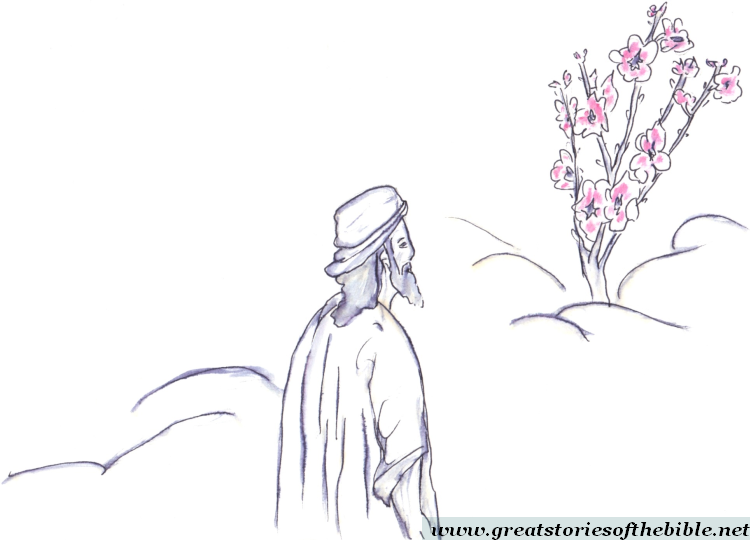Jeremiah - episode 1
I have put my words in your mouth
In the present post we start reading the Book of Jeremiah. «The words of Jeremiah the son of Hilkiah, of the priests who were in Anathoth in the land of Benjamin: to whom the word of the LORD came in the days of Josiah the son of Amon, king of Judah, in the thirteenth year of his reign. It came also in the days of Jehoiakim the son of Josiah, king of Judah, to the end of the eleventh year of Zedekiah, the son of Josiah, king of Judah, to the carrying away of Jerusalem captive in the fifth month» (Jer 1,1-3). The prophet belongs to the family of Abiathar the priest, whom King Solomon banished to Anathoth for his support to Adonijah (Solomon’s rival to the throne: see David - episode 5). From his family Jeremiah takes a different point of view than the court’s one: he underlines the theme of “Israel people of God” better than the Davidic messianic promises (very present in Isaiah instead: see Isaiah - episode 3 and Isaiah - episode 4) and he makes pungent criticisms of the Temple and the common worship practices. To Jeremiah kings and priests are far from the Lord and the humble people: because of his words, he will suffer many persecutions by the governing elites of the people. His ministry starts in 627 BC (King Josiah’s thirteenth year of reign), it follows until the destruction of the Jerusalem Temple and the deportation of Judah (587 BC), and it concludes in Egypt, after his having to flee due to governor Gedaliah’s killing (see Jer 43,5-7).
«Now the word of the LORD came to me, saying, “Before I formed you in the belly, I knew you. Before you came forth out of the womb, I sanctified you. I have appointed you a prophet to the nations.” Then I said, “Ah, Lord GOD! Behold, I do not know how to speak; for I am a child.” But the LORD said to me, “Do not say, ‘I am a child;’ for to whoever I shall send you, you shall go, and whatever I shall command you, you shall speak. Do not be afraid because of them; for I am with you to deliver you,” says the LORD. Then the LORD put forth his hand, and touched my mouth; and the LORD said to me, “Behold, I have put my words in your mouth. Behold, I have this day set you over the nations and over the kingdoms, to pluck up and to break down and to destroy and to overthrow, to build and to plant.”» (Jer 1,4-10). Jeremiah is consecrated in his whole person and identity, since the maternal womb and even before, in the Lord’s eternal love (the Bible uses the Hebrew verb translated with “to know” to mean the marital intercourse). The prophet protests, but the Lord confirms him; He touches Jeremiah’s mouth, as he did with Isaiah’s (see Isa 6,6-7). Jeremiah will pronounce the Lord’s Word to destroy the people’s idols and to plant seeds of new hope (see Jer 29,11).
«Moreover the word of the LORD came to me, saying, “Jeremiah, what do you see?” I said, “I see a branch of an almond tree.” Then the LORD said to me, “You have seen well; for I watch over my word to perform it.” The word of the LORD came to me the second time, saying, “What do you see?” I said, “I see a boiling caldron; and it is tipping away from the north.” Then the LORD said to me, “Out of the north evil will break out on all the inhabitants of the land. For, behold, I will call all the families of the kingdoms of the north,” says the LORD; “and they shall come, and they shall each set his throne at the entrance of the gates of Jerusalem, and against all its walls all around, and against all the cities of Judah. I will utter my judgments against them touching all their wickedness, in that they have forsaken me, and have burned incense to other gods, and worshiped the works of their own hands. “You therefore put your belt on your waist, arise, and speak to them all that I command you. Do not be dismayed at them, lest I dismay you before them. For, behold, I have made you this day a fortified city, and an iron pillar, and bronze walls, against the whole land, against the kings of Judah, against its officials, against its priests, and against the people of the land. They will fight against you; but they will not prevail against you; for I am with you,” says the LORD, “to deliver you.”» (Jer 1,11-19). 
In Jeremiah’s vision there is a play on two Hebrew words: šāqēd is the almond tree, while the Lord is šōqēd (watching over) His Word to perform it. The «boiling caldron» is the effective symbol of a northern invasion: they are not the Assyrians anymore, but the new Babylonian power that the remaining kingdom of Judah will have to front. The governing elites will criticize Jeremiah because of his alleged “sympathies” for the Babylonians: they are an instrument of the Lord’s judgement (see Ger 29), who tries to oppose them (looking for Egypt’s help) will only exacerbate Jerusalem sufferance. Only the Lord (and not human covenants) will rescue His people, at the appointed time.
Follow in the next post.